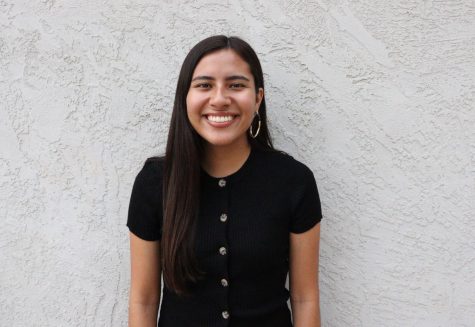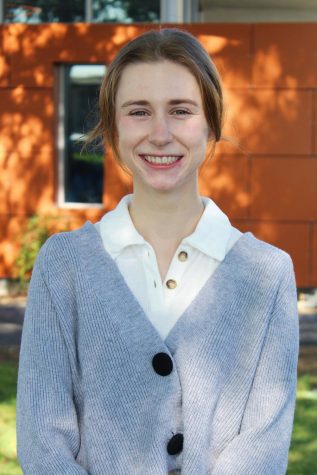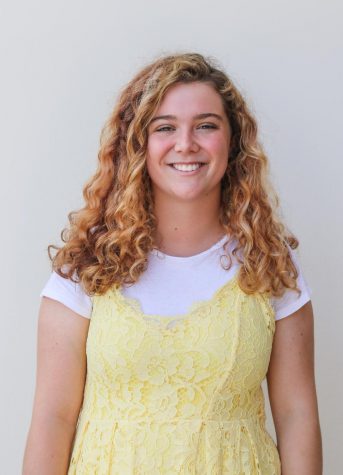The Student Congress of Racial Reconciliation kicked off its 25th conference on Feb. 17. This year, the theme surrounded “Heritage: Celebrating our Past, Embracing Our Future.”
KEYNOTE ADDRESS
President Barry Corey welcomed attendees from Biola and other universities across the United States. Corey emphasized the need for unity amid diversity and the need of a biblical perspective to seek out racial reconciliation. SCORR co-founder Glen Kinoshita introduced this session’s keynote speaker Reverend Lena Cruoso who serves as the Chief Diversity Officer in the Office of Intercultural Learning and Engagement at Southern Nazarene University.
Cruoso emphasized the importance of acknowledging the past of racial reconciliation and finding ways to pursue it in the future. She focused on the global pandemic that has wreaked havoc on many communities and the racial injustices that took place this summer, which she labeled as “human rights violations.”
At the same time, Cruoso shared her belief that the very best of humanity has presented itself through loving others. She described racial reconciliation as a process that unites humans in their diversity which eventually leads to the deconstruction of any man-made barriers.
DOES THE SHOE FIT
Biola University’s Division of Diversity and Inclusion department has developed an effective plan for developing intercultural education for employees and students. Director of Intercultural Education and Research Walter Augustine spoke on how the university strategizes intercultural education programs in light of institutional culture.
Augustine’s breakout session “Does the Shoe Fit?: Developing Intercultural Education for Employees & Students” explained that every part of creating an intercultural curriculum needs to be grounded in a biblical and theological basis.
The institutional culture at the university shows tension between the missional value and the informal value of the “Biola Bubble,” according to Augustine. The mission of the university is to equip students to make an impact for Christ in the world while the expectation is that Biola will be separated from the influences of the world. In order to develop a solid intercultural education model, it is instrumental to understand Biola’s institutional culture.
The developed programs, Leaders Engaging and Advancing Diversity scholars program and the 6-week employee training program Symphony, were framed in mind of the institutional culture. The levels of intercultural education scaffolding, envisioned by Intercultural Education and Assessment Director Alicia Andre, order the curriculum from foundational concepts and builds to systemic and structural realities.
FRIENDS, FAMILY AND MATTERS OF JUSTICE
Kathryn Ecklund, professor and chair of the psychology department at Azusa Pacific University hosted the breakout session: “Friends, Family and Matters of Justice: Engaging in Difficult Diversity Conversations with Loved Ones.”
Ecklund dove headfirst in explaining what seeking justice looks like. Justice, according to Ecklund, appears in sacrificial care and living in right relationships with those who are marginalized or are considered outsiders. Justice also comes from resolving conflict by means of undoing harm, seeking healing and forming peace.
Ecklund also mentioned what can make the battle for justice difficult. Ecklund gave several examples, such as relationship dynamics, threatening emotions or different worldviews.
In order to overcome these difficulties in the pursuit of justice, one should seek mutuality with their family and friends. Mutuality is developed over time when respect, vulnerability and a shift of self-interest are sought out for.
UNIDOS EN LA LUCHA (STRUGGLE)
The breakout session: “Unidos en la lucha: My Journey with Past and Present Hispanic Authors and Theologians (Luchadores)” was led by Biola’s very own Talbot School of Theology professor of Christian higher education Octavio Esqueda.
Born and raised in Guadalajara, Mexico, Esquada was one of the only Protestants in the predominantly Roman Catholic community he grew up in. When Esqueda attended Bible school, he experienced theology from what he calls an “Anglo-saxon perspective,” and was not introduced to theology from a Hispanic perspective.
Esqueda highlighted four key aspects of Hispanic evangelical theology he finds important. Theology is a communal process, meaning faith extends beyond oneself and to those around them.
Another aspect is integral or holistic mission, which is faith that shapes every area of life. Esqueda explained further that there is no separation of personal versus public faith.
Theology provides hope, meaning there is an awareness that the present circumstances may not be ideal in the moment, but they will get better tomorrow.
The last aspect of Hispanic evangelical theology mentioned was theology from the “margins.” He gave the example that oftentimes, Christians read scripture from the perspective of the ones needing to help the poor or needy, rather than practicing empathy by seeing life from the perspective of the marginalized.
REVIVING RECONCILIATION
Reverend Chris Brooks of the Woodside Bible Church in Detroit and radio host of Equipped with Chris Brooks, hosted the breakout session: “Reviving Reconciliation.” Brooks compared the racial disparities that have taken place this past year with the discrimination of hellenstic Jews in Acts 6.
The success of Jesus’ ministry, according to Brooks, was not measured by the conquest of enemies but by loving one’s neighbor. Brooks highlighted Jesus’ parable, “The Good Samaritan” to prove this point which answers who our neighbor is.
“Jesus tells us your neighbor is someone who looks different than you,” Brooks said. “Culturally, ethnically, the tension between the Jews and the Samaritans were as fraught with confusion and hatred and animosity as any groups we can think of today.”
The only way to achieve the end goal of the Gospel is through the cross-cultural unity of the church, according to Brooks. The definition of justice has been misconstrued as simply the act of calling out injustice, but true justice has the end goal of reconciliation.
Any definition of justice that is rooted in violence with means to overthrow, should be rejected. Brooks explained that the credibility of the Gospel is diminished when any group of people is isolated, but it is magnified by the unity of the multiethnic church across cultural barriers solidified in the body of Christ.
HUMAN DIGNITY IN AN AGE OF MASS INCARCERATION
Speakers Michal Meulenberg and Jasmine Ward teamed up to deliver an eloquent and informative breakout session on “Human Dignity in an Age of Mass Incarceration.”
Meulenberg and Ward began by exploring the scope of the criminal justice system in America. They revealed the disproportionate rates at which the U.S. court system imprisons people compared to other countries despite boasting the same crime rates. Additionally, they discussed the impacts that incarceration has on people even after they have been released, such as finding employment.
They revealed that many people do not know just how imperfect the U.S. system is due to the intense dehumanization of people affected by incarceration. As a result, the criminal justice system has not undergone the major changes it so desperately needs.
They concluded the presentation by exploring the biblical notion of justice, which ultimately springs from our knowledge of God. They remind us that God never commands the institution of any form of imprisonment, rather he encourages us to remember, visit and set free those who are imprisoned.
DO YOU SEE ME?
Pastor Ray Causly, a Black man who has primarily served in the city of Compton at a Korean Christian church, was introduced by Biola’s Director of Intercultural Education and Research Walter Augustine to discuss racial reconciliation in the gospel.
Causly reminded students that racial reconciliation is not merely something that the media and social media should push for, but rather something that we, as Christians, need to work out. He explained that although many white baptists seem to have an alternate view of the issues people of color face, the truth is that Jesus wants a multicolored bride, not one nation.
Causly reassured students that although it may seem like social justice movements only last as long as they are trending, the gospel constantly calls for them. He added that Jesus has power in every corner of the world, not just where we stand.
He also reminded Christians that we must strive for proximity. Causly, who is married to a white woman, recalled his wife’s hardships understanding the Black community. Once they moved to Compton, his wife was able to see and live through the plights of her Black peers.
Causly ended with a call to action for all Christians by reminding students that loving one another requires patience and proximity to each other.
EMBRACING JESUS’ GOOD NEWS MINISTRY
Speaker and Pastor Bobby Scott is a pastor of discipleship at Community of Faith Bible Church in South Gate, Calif. Scott introduced his African American background and talked about “Embracing Jesus’ Good News Ministry & His New United Humanity” in the breakout session. He explained racial reconciliation from a biblical perspective.
Scott opened up with the story in Genesis of when humans first sinned and disobeyed God. Then God divided the undivided human race into separate languages and lands. Scott emphasized that the division caused violence everywhere and pitted people against each other; tribalism is simply a natural and inescapable part of the fall in Genesis.
According to Scott, believers have hope in the future of a united humanity. Reconcilers must bridge the gap between God and the world with a gospel message that brings peace.
“We are a part of the kingdom of God’s beloved son and an ambassador for Christ”, Scott said.
THE BROWN CHURCH
Robert Chao Romero is a professor of Chicana/o Studies and Asian American Studies at the University of California, Los Angeles. In his breakout session “The Brown Church” he shares the history of the Hispanic Church’s theology.
Referencing Revelation 21:22-27, he outlined how each cultures’ perspectives and values help deepen the body of Christ’s understanding of God. The diversity of Latin America means that the Hispanic Church comprises a spectrum of ethnicities and cultures. Romero discussed the theology that believes in both the proclamation and demonstration of the gospel.
“One without the other is an incomplete version of the gospel,” Romero said.
The Hispanic Church is older than the Protestant and Catholic divide. According to Romero, it began in 1511 with Antonio de Montesinos who fought against the persecution of indigenous people. Montesinos called the Spaniards’ conquest an opposition to Christ’s teachings. The Hispanic Church has been fighting for justice since it began with the Montesinos and it continues to do so today.
CRITICAL RACE THEORY
Adam Edgerly, director of Covenant World Relief & Development and CEO of Culture Consultants defined the Critical Race Theory and explained how God’s law can provide guidance in civic law.
“Christians are interacting, not just on an interpersonal level, but at a social level, an economic level and at a civic level with what righteousness looks like and what we learn from scripture,” Edgerly said.
According to Edgerly, when the Bible talks about injustice, it is always in reference to institutional oppression that results in the persecution of a certain group. Critical Race Theory seeks to undo systemic racism in the law, according to Edgerly. He explained how race has contributed to the legal system in the West and the danger of embracing Christian Nationalism.
Edgerly explained that democracy and scriptural law are far too different for us to claim Christianity as the national religion of America. Democracy is centered on self-governing while the Bible commands us to let God govern our lives. No political system can be compared as an alternative to the Gospel, which he explained that people are trying to do with the Critical Race Theory.
“That’s the reason why I started the conversation today of defining what the Critical Race Theory is attempting to do and showing that it is actually an entirely different area of thought than personal salvation,” Edgerly said.
“SCHOOL-TO-PRISON” PIPELINE
The civil rights issue of our time is the “school-to-prison” pipeline, according to Walter Myers III, an adjunct faculty member at Biola’s science and religion master’s program. The “school-to-prison” pipeline termed in the 21st century highlights policies and practices that directly or indirectly lead students out of school and into the criminal justice system.
Myers believes the primary causes of the pipeline are from the breakup of the nuclear family, lack of parental involvement, lack of parental education and an inability of parents to help their children. This burden, then, falls on public schools, which often fail to meet the needs of students.
Public schools, Myers explained, are run by unions. therefore, the child and parents are not the customer, rather the union is the customer. These unions are politically strong and pay based on seniority instead of teacher performance. Some teachers, according to Myers, have limited incentive to innovate better ways to teach once they hit tenure.
The solution Myers presented was charter schools. Charter schools operate independently from districts and unions and are privately run even though they are publicly funded. Since charter schools are responsible to parents, curriculum is expected to tailor to the needs of every student. When the educational needs of students are met, they are more likely to be prepared for college.
CONCLUDING SESSION
SCORR’s final session was led by Reverend Eugene Cho, president and CEO of Bread for the World Institute. Cho focused on the passage John 4:1-10 which describes Jesus’ conversation with the Samaritan woman. In Jesus’ day, there was animosity between the two communities, which prevented them from interacting with each other.
Cho highlighted that the root of oppression happens when we choose to dehumanize one another, but Christians have been given a unique lens to be able to view all people as made in the image of God.
In verse 4, Scripture says Jesus had to go through Samaria. Cho related the actions of Jesus as exemplary because many Christians like the idea of racial reconciliation, however, when they realize that it requires dismantling and confronting, many shy away. Jesus demonstrated that he had to go to Samaria to break down barriers of prejudice and judgment and replace those with beacons of peace, love and hope.














